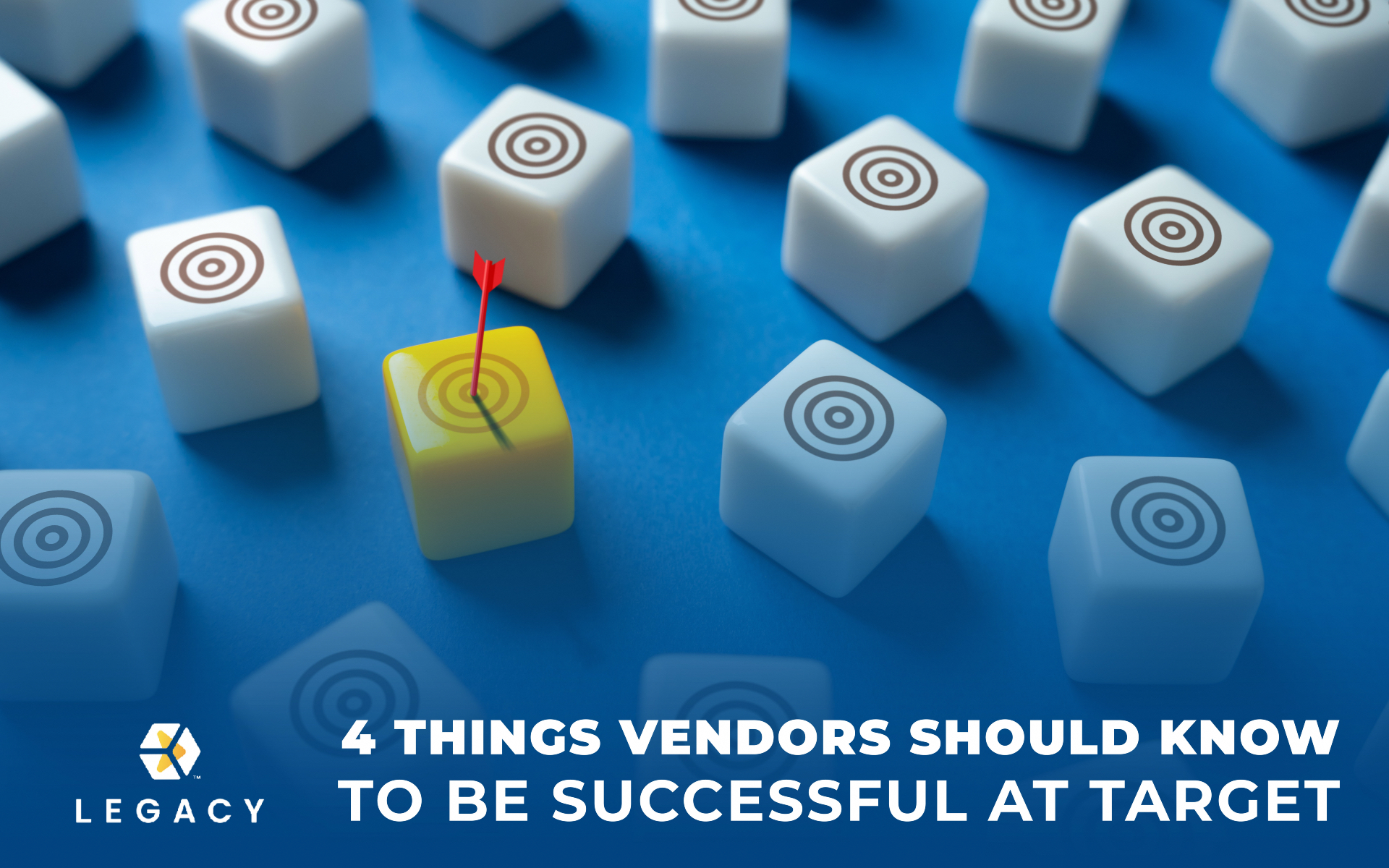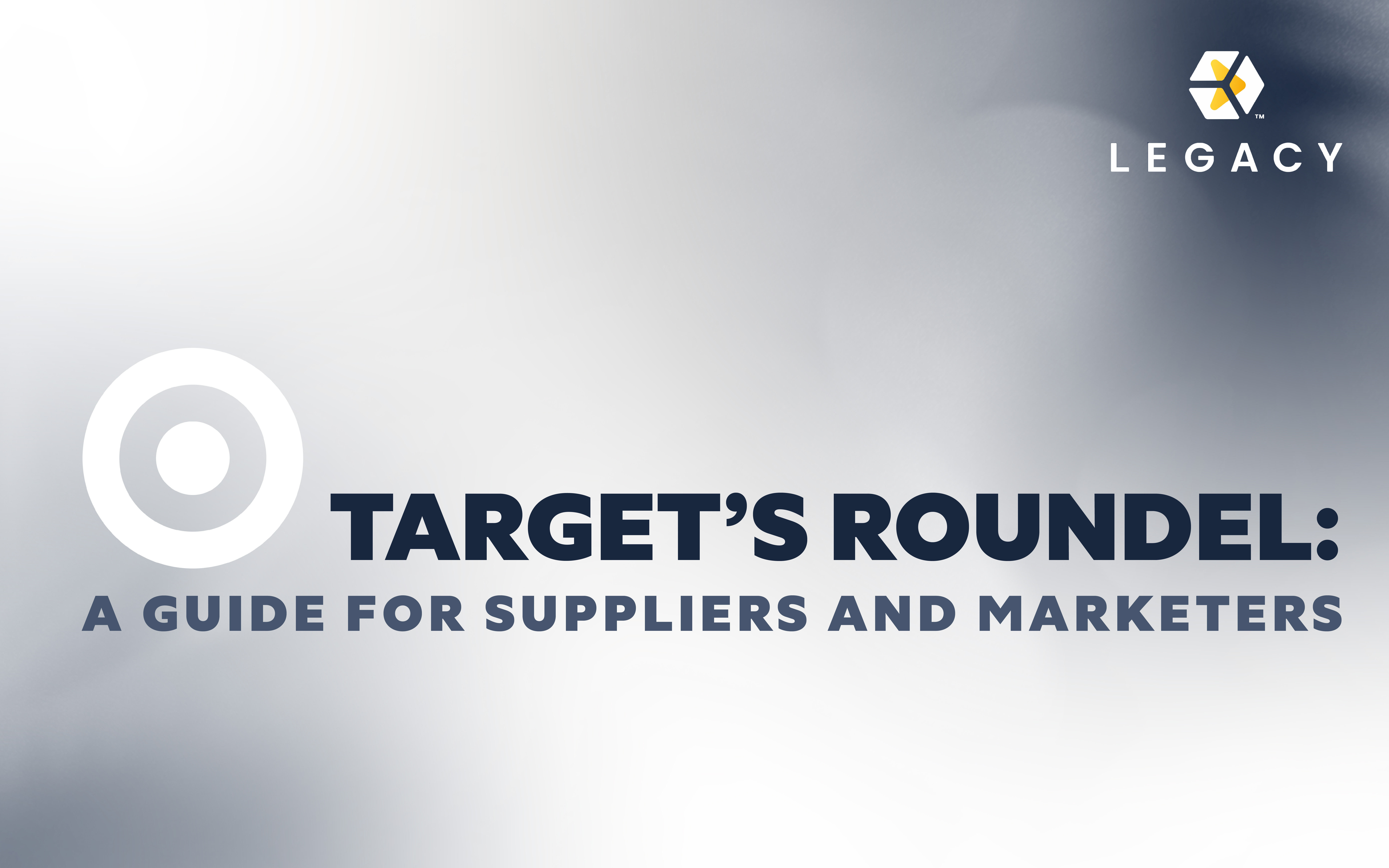Whether you are a current Target vendor or are seriously considering placing products in this retail store, you must understand both Target’s historic and forward-thinking retail strategies to have success. Not altering your strategies may mean missing out on sizable profits and an increased likelihood that your competition overtakes you.
To aid your success, the Legacy Retail team will cover four critical factors to implement in your Target strategy: EDLP, omnichannel, private label, and Target-exclusives. Knowing these will equip you to either remain or become a competitive player.
To learn more, the Legacy Retail team invites you to keep reading.
1 Focus on EDLP strategy
Target has moved away from its historical “high-low” promotion strategy and towards an Everyday Low Price strategy (EDLP).
This means consumers shop with the sense they are procuring great deals every time they purchase from this retailer. This sense arises from Target’s constant low prices, which negate the need for coupons, major sales events, or price comparison programs.
This EDLP strategy is primarily driven by Target’s loyalty program, Target Circle, found within the Target App (it would be advantageous to place your product within this digital channel).
All these factors should influence your pricing, placement, and marketing decisions. You must formulate custom campaigns and strategies harmonizing with Target’s current direction.
2 Differentiate your product
With partners like Disney and Ulta, Target has implemented their “store in a store model”. And it continues to look for ways to differentiate its offerings by giving priority placement and support to exclusive lines. To differentiate its products from those in remaining markets, Target aims to make its offerings bigger, bolder, and better than those at other retailers.
To widen the reach of your brand, it is recommended that you formulate innovative strategies for presenting your products in-store.
3 Create an omnichannel strategy
If you are not thinking about eCommerce when it comes to Target, you will lose.
Target prides itself on quick and efficient communication regarding its product offerings both in-store and online. This has become increasingly important to its operations as it expands its fulfillment services. Regarding its fulfillment services, it has launched multiple programs such as Buy Online, Pick Up In Store (BOPUS), Drive Up, Shipt, and Instacart delivery.
It has also remodeled over 1,000 of its stores to act as hubs for digital shopping and allocated over $4B for further remodels and the creation of new stores. Additionally, it has launched a program at 240 of its stores where customers can add their favorite Starbucks drink to their Drive Up orders. It is also working on rolling out nationally a program where customers can return purchases without leaving their cars.
Target’s implementation of these programs should urge you to incorporate your products in its various eCommerce channels to maximize your sales.
4 Understand Target’s private label strategy
Target’s store remodels promote ease and inspiration while also elevating the presentation of their discretionary categories and private label offerings. This will continue to be a strategic priority for the retailer.
It is advisable to understand and establish your internal team’s private label strategy as you determine your approach to working with this retailer.
Legacy Retail is a team of CPG experts with over two decades of experience in brick-and-mortar retail and extensive experience in e-Commerce. If you are a current Target vendor or considering becoming one, we can help you remain or become a competitive player in their stores.
To learn more, contact Legacy Retail by clicking here.




